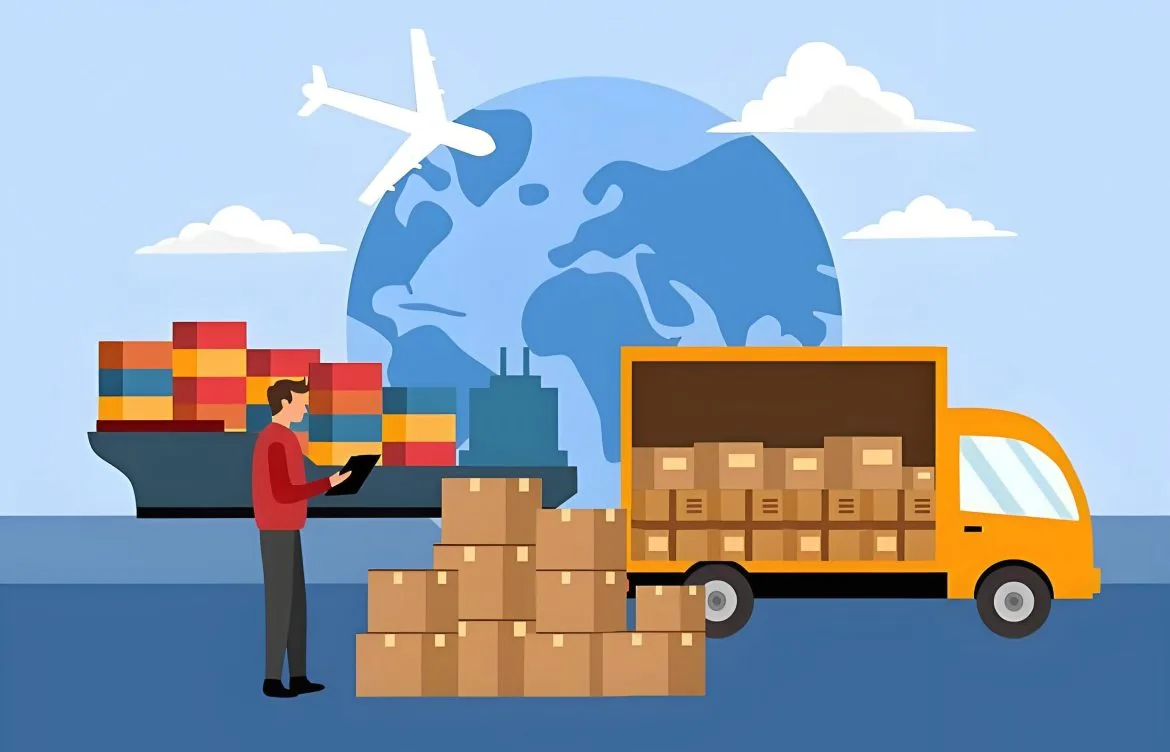
Freight Forwarding Explained: A Complete Guide
Freight forwarding plays a crucial role in global trade, yet many people don’t fully understand what it entails. Whether you are a business owner, a logistics enthusiast, or someone looking to ship goods internationally, this guide will help you grasp the basics of freight forwarding, what freight forwarders do, and how to choose a reliable one.
- What Is a Freight Forwarder?
Simply put, a freight forwarder acts as a middleman between carriers (such as shipping lines and airlines) and cargo owners. Their job is to handle every step of international logistics, making it easier for businesses to transport goods across borders.
For instance, if you want to ship products from China to international destinations, a freight forwarder helps you book vessels, arrange customs clearance, transportation, and delivery—essentially serving as your logistics expert.
- What Does a Freight Forwarder Do?
A freight forwarder’s responsibilities go beyond just booking a ship or a plane. They manage the entire logistics chain, ensuring goods reach their destination smoothly and on time. Here’s a breakdown of their key tasks:
- Booking Space (Freight Booking) – Finding the best shipping or air freight options at optimal prices.
- Customs Declaration (Export Clearance) – Checking invoices, packing lists, and other documents to comply with customs regulations.
- Warehousing & Packaging – Arranging pickup, packaging, labeling, and temporary storage of goods.
- Cargo Insurance – Providing insurance coverage to protect goods during transit.
- Import Clearance & Final Delivery – Handling customs clearance at the destination and ensuring the goods are delivered to the consignee.
By managing these critical steps, freight forwarders ensure that cargo moves efficiently, safely, and in compliance with regulations.
- Types of Freight Forwarders
Freight forwarders are classified into two main categories:
Primary Agents (Tier 1 Freight Forwarders)
- Directly book space with shipping lines and airlines.
- Have access to better resources, lower rates, and more flexible solutions.
- Typically serve larger clients with high-volume shipments.
Secondary Agents (Tier 2 Freight Forwarders)
- Book space through Tier 1 forwarders rather than directly with carriers.
- Ideal for small to medium-sized businesses that require more personalized service.
- May offer more flexibility in handling smaller shipments.
- Who Are the Clients of Freight Forwarders?
Freight forwarders primarily serve two types of clients:
- Industry Peers
Freight forwarders often collaborate with each other. For example, a smaller forwarder may rely on a larger one to secure better rates or access additional shipping routes.
- Direct Customers (Shippers and Receivers)
These include businesses or individuals that need to ship goods internationally. Freight forwarders help them navigate complex logistics, ensuring their shipments reach their destinations without delays or compliance issues. Zcyt Logistics primarily focuses on serving direct customers, ensuring smooth and reliable shipping solutions.
- What Makes a Good Freight Forwarder?
Not all freight forwarders are created equal. A reliable and professional freight forwarder should have:
- Trustworthiness – Honesty and transparency in pricing, with no hidden fees.
- Strong Industry Expertise – Deep knowledge of international shipping, regulations, and documentation.
- Efficient Coordination Skills – Ability to manage every step of transportation, from booking to final delivery.
- Reliability and Punctuality – Ensuring that cargo arrives safely and on time.
- Customer-Centric Service – Quick response times, effective communication, and a problem-solving attitude.
Conclusion
Freight forwarders simplify international shipping, making it easier for businesses to transport goods across the world. Whether you need to book a shipment, handle customs paperwork, or manage cargo insurance, freight forwarders play a crucial role in ensuring a smooth and hassle-free logistics process.
When choosing a freight forwarder, prioritize experience, reliability, and transparency to ensure your shipments are in good hands.
